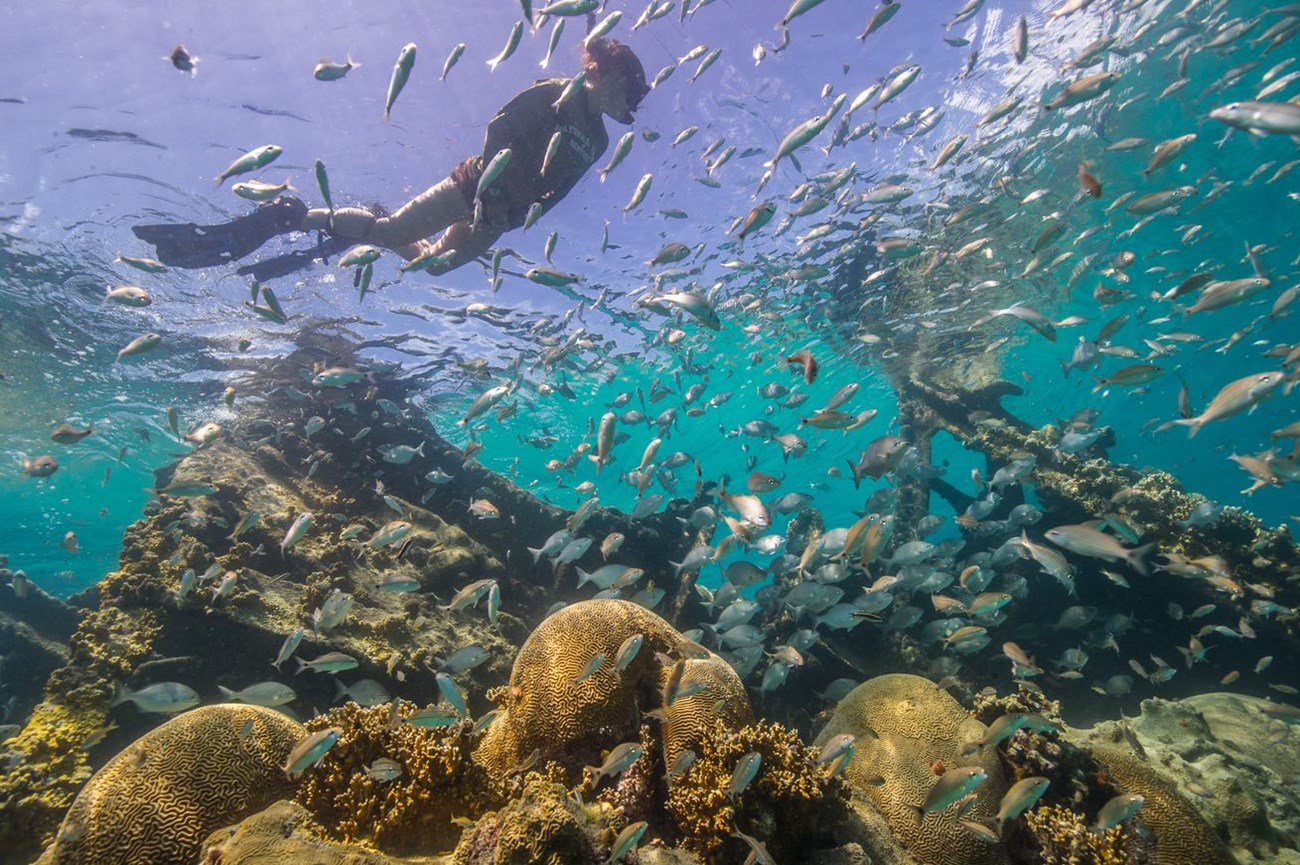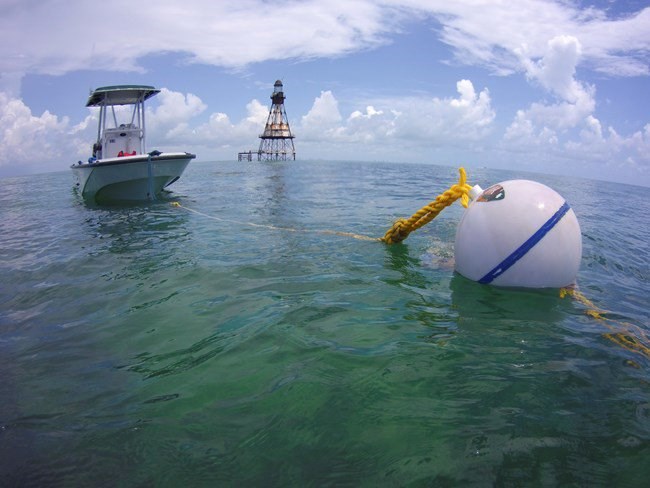Everyone can help keep corals healthy and safe. Check out the recommendations below and share with a friend.
NPS photo Recreate Responsibly

NPS photo Be a responsible boater
Take care of coral reefs from home

NPS photo |
Last updated: April 22, 2021
